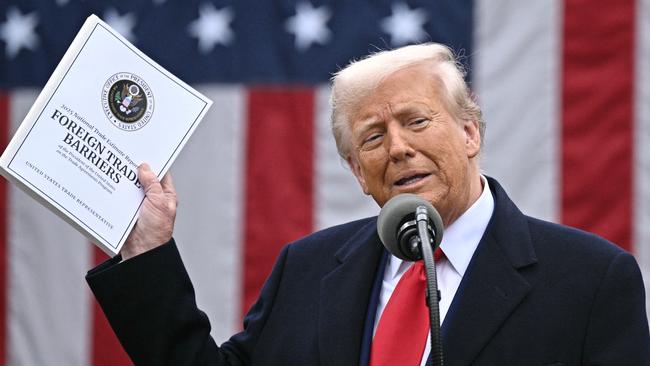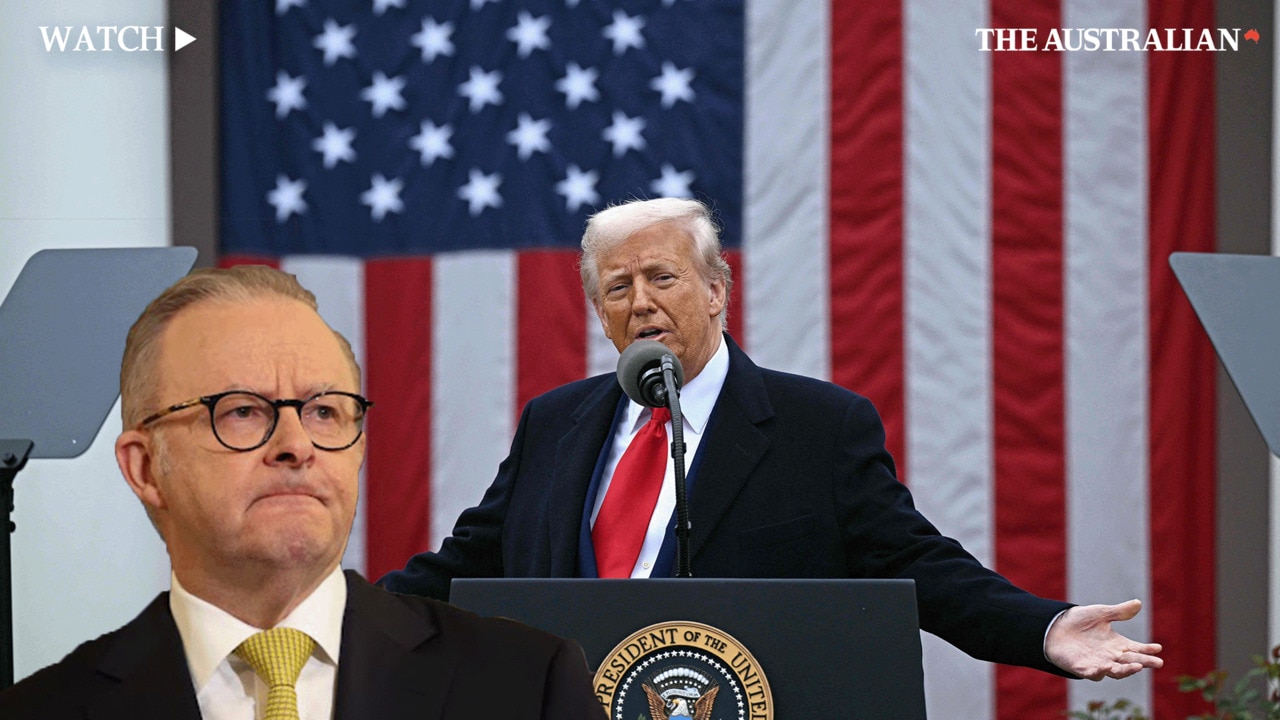
Donald Trump might call it Liberation Day, but it’s a sad day for the international trading system. While it’s true that countries cheat, fudge and manipulate – gosh, even the US does this – trade between countries offers win-win outcomes that improve global living standards.
The best approach would be to tackle the weaknesses of international trade rather than the US impose unilateral tariffs, with rates varying according to reasonably cack-handed assessments of tariff and non-tariff barriers countries impose on the US.
But Donald Trump’s win-lose view of world trade has led to where we are now. On the face of it, Australia has got off lightly, with a proposed tariff of 10 per cent, the lowest on offer.
Our beef trade is singled out for special mention because we don’t import US beef for biosecurity reasons. Whether these reasons are fully justified is not entirely clear, but the way forward would be for the US to seek some clarification (and transparency) for the ban.
What is of greater concern is the relatively high tariffs being imposed on China, our largest trading partner by a country mile. It’s not certain at this stage whether the announced tariff rate is in addition to the tariffs that already apply to Chinese exports to the US.

There is a possibility that the countries hit by Trump’s new tariffs will fight back. For example, China and other nearby countries, including Australia, could form a free trade bloc, which could be harmful to the US. China and the EU are already in conversation about the possibility of forming a trade alliance.
In other words, Trump might think he is holding all the winning cards, but the reality is more complicated.
This extends to what happens to exchange rates. Imposing tariffs drives up a local currency, the reverse of what Trump is seeking.
When tariffs were imposed on China during the first Trump and Biden administrations, the net effect was to see an appreciation of the US dollar and a depreciation of the renminbi. To be sure, the US received the tariff revenue, but the impact on trade was muted because of the offsetting impact of the currency movements.
The idea that Trump’s actions can be contested in the World Trade Organisation, something the Prime Minister, Anthony Albanese, is considering, is fanciful. Apart from the fact that the WTO is barely functional, these types of cases take a long time to conclude. It’s also not clear that the US would take any notice of the final decision.
The more likely outcome is that the world will simply have to wait until the negative effects on US industry and consumers become more apparent. It is at this point that the volatile President could change his mind. The impact on the sharemarket is also an important consideration. Were the Dow Jones index to fall significantly, for instance, there is likely to be some rethink of the strategy.
Anticipating the impact on car prices, there has already been an announcement by the Trump administration of full tax deductibility of interest on car loans, which would have the effect of offsetting, at least in part, the tariff hit to consumers. Recall that the soy bean producers who were badly affected by the earlier tariff imposed on China were showered with subsidies to offset the impact.
This raises the issue of the net impact on revenue for the US which, on the face of it, is a driving force behind Liberation Day. To the extent that the administration is forced to compensate US businesses and consumers, the all-up gain in revenue will be much less than expected. Even in the most optimistic scenarios, the gain in revenue is small relative to income tax revenue, for instance.
Having said this, there is really no chance Trump will change his mind on tariffs, at least in the short term. He simply refuses to believe tariffs are the equivalent of taxes, the burden of which falls mainly on low-income people. And ultimately tariffs are ineffective at encouraging investment in import-competing industries, something Australia finally came to realise.
This is not to deny there may be geo-strategic reasons for thinking about trade policy – targeted tariffs, or bans even, can make sense to ensure guaranteed supplies of critical goods. But Trump’s Liberation Day is something else: it’s a scattergun approach that will come unstuck over time. In the meantime, other countries will react in varying ways, including imposing tit-for-tat tariffs on US imports while also setting up competing trading blocs.
Australia is best placed to keep its power dry, rule out imposing reciprocal tariffs and wait. Entering into dialogues with these other countries, as well as the US, also makes sense.






